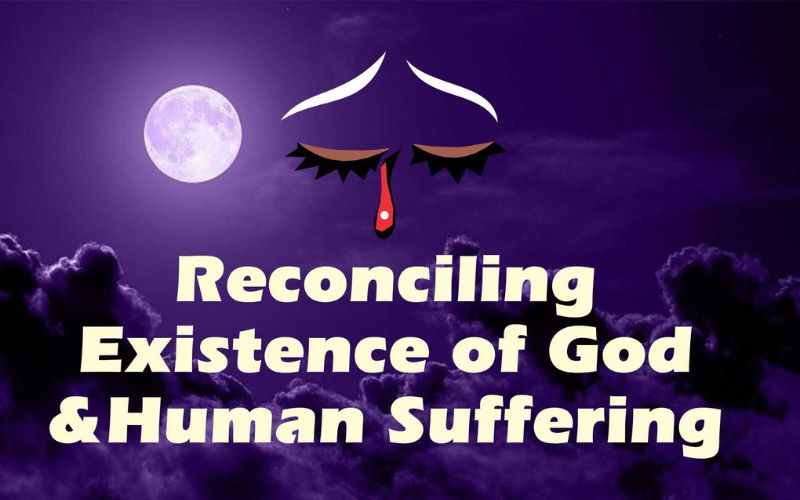In the complex tapestry of human existence, the juxtaposition of desire and destiny often engenders profound contemplation. The Bahá’í teachings provide a rich framework for understanding the interplay between human will and the will of God, offering insights that resonate deeply within the human experience. The quest to reconcile our intrinsic desires with a divine destiny is a journey that unravels layers of both spiritual and existential significance.
At the heart of Bahá’í philosophy lies the assertion that human beings are endowed with free will—a divine gift that empowers them to act consciously and deliberately. However, free will exists within a larger context: the overarching will of God. This relationship invites inquiry into the very nature of desire and its alignment with divine purpose. How do our personal aspirations interact with the cosmic design that governs existence? This question is both compelling and intricate, deserving rigorous exploration.
The Bahá’í writings delineate a clear distinction between two kinds of desires. The lower nature, often driven by selfishness and materialism, conflicts with the aspirations of the spirit. In contrast, the higher nature aspires towards unity, love, and the realization of one’s potential in alignment with divine will. It is within this duality that individuals must navigate their choices, striking a harmonious balance between personal aspirations and collective spiritual objectives.
One might ponder the inherent tension between individual desires and the decree of a transcendent will. This epistemological tension can evoke feelings of disenchantment among seekers. However, the Bahá’í doctrine posits that true fulfillment emerges not from the pursuit of transient desires but from a deep-seated alignment with divine intentions. This does not imply a nihilistic resignation to fate; rather, it encourages an active engagement with one’s will and aspirations in order to facilitate divine service.
Examining the concept of destiny in the context of Bahá’í teachings reveals that destiny is not a static blueprint imposed from above but is instead dynamic and co-created through the exercise of human agency. Every individual’s choices contribute to the tapestry of creation, influencing the unfolding of divine will. This synergistic relationship emphasizes the necessity for individuals to cultivate spiritual qualities, such as altruism, patience, and integrity, thereby aligning their desires with a higher purpose.
The Bahá’í teachings also emphasize the iterative nature of human development. As individuals navigate the vicissitudes of life, they are continually sculpted through experiences that cultivate spiritual maturity. This process necessitates an intimate reflection on personal desires and aspirations, questioning their alignment with a broader, more profound purpose. By engaging in such introspection, individuals can transcend the confines of their lower nature, allowing their eyes to open to greater vistas of understanding and fulfillment.
Moreover, the concept of unity emerges as a central theme in reconciling desire and destiny. In Bahá’í thought, the recognition of our interconnectedness fosters a collective responsibility—individual desires must be tempered by consideration of the broader community. This principle of consultation exemplifies the power of collaborative decision-making, which serves to harmonize diverse perspectives and aspirations. By grounding personal desires within the context of communal well-being, believers can elevate their pursuits to new heights of meaning.
The challenge of reconciling human will with divine decree is not solely an intellectual pursuit; it permeates the very essence of human experience. Adversity often underscores the struggle between what one desires and the reality of one’s circumstances. In the face of trials, Bahá’í teachings offer solace, positing that such experiences serve a greater purpose in fostering spiritual growth. Suffering, in this context, becomes a crucible for refinement, urging individuals to seek deeper connections with their spiritual selves and the divine will.
Furthermore, understanding the nature of divine will is paramount. It is not an arbitrary force dictating every action; rather, it is a loving and guiding influence that encourages humanity towards greater heights of understanding and enlightenment. The nuances of this relationship invite individuals to engage with a multitude of spiritual tools—prayer, meditation, and community service—that deepen their awareness of divine intent, promoting a harmonious reconciliation of desire and destiny.
In conclusion, the exploration of Bahá’í teachings on reconciling desire and destiny reveals a profound and multifaceted relationship between human will and the will of God. By embracing the dualities inherent in this dynamic, individuals can strive to align their personal aspirations with a higher purpose. This journey not only cultivates spiritual maturity, but it also fosters a sense of unity and interconnectedness among all humanity. The path to reconciliation is not devoid of challenges; however, through earnest reflection and an unwavering commitment to spiritual principles, individuals can navigate the complexities of life with grace, purpose, and a deep sense of fulfillment.
